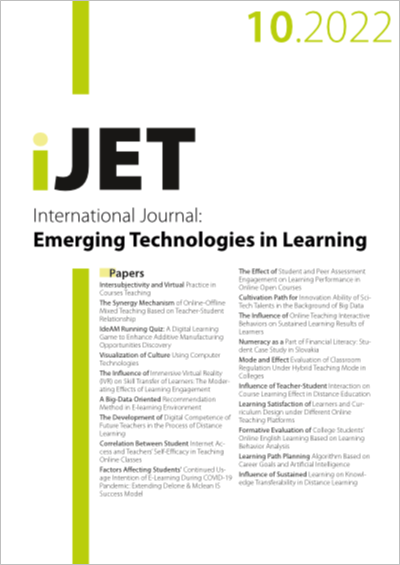Learning Satisfaction of Learners and Curriculum Design under Different Online Teaching Platforms
DOI:
https://doi.org/10.3991/ijet.v17i10.30937Keywords:
online teaching platform, curriculum design, learners, learning satisfactionAbstract
Learner-centered online education philosophy has been applied extensively and online learning is appreciated by more people. With good interaction, enjoyments and simulation, online learning increases learning experiences and harvests of learners. However, since more online learning platforms focus on education technological development and ignore firsthand experiences of learners, they pay few attentions to learning satisfaction of learners. In this study, the influences of four curriculum design aspects of online teaching on learning satisfaction of learners were investigated by a questionnaire survey to students. Moreover, differences in learning satisfaction of learners caused by different online teaching platforms were analyzed. Results demonstrate that content design and activity design of online teaching can improve learning satisfaction of learners effectively, while object design and evaluation design fail to improve learning satisfaction of learners effectively. Samples used in different platforms have significant influences on learning satisfaction. Samples of different majors all show significant influences on learning satisfaction. Conclusions can provide important references on how to improve curriculum design quality of online teaching and increase the online teaching design ability and technological application ability of teachers to make university students become individual learning subjects and improve their online learning satisfaction.
Downloads
Published
How to Cite
Issue
Section
License
Copyright (c) 2022 Yuanyuan He, Xin Fu

This work is licensed under a Creative Commons Attribution 4.0 International License.


